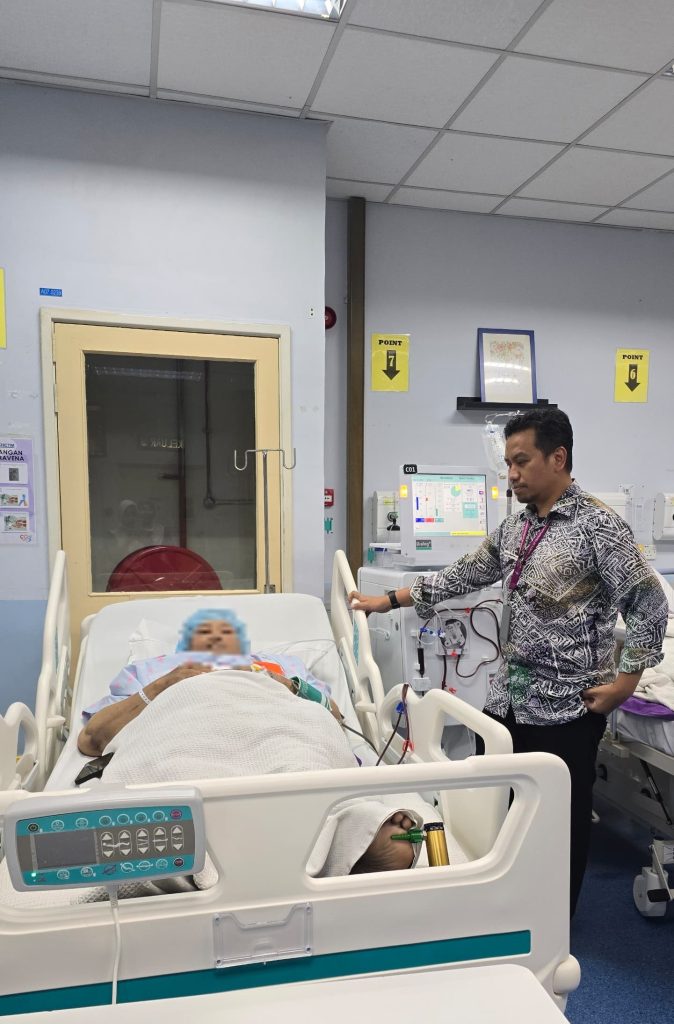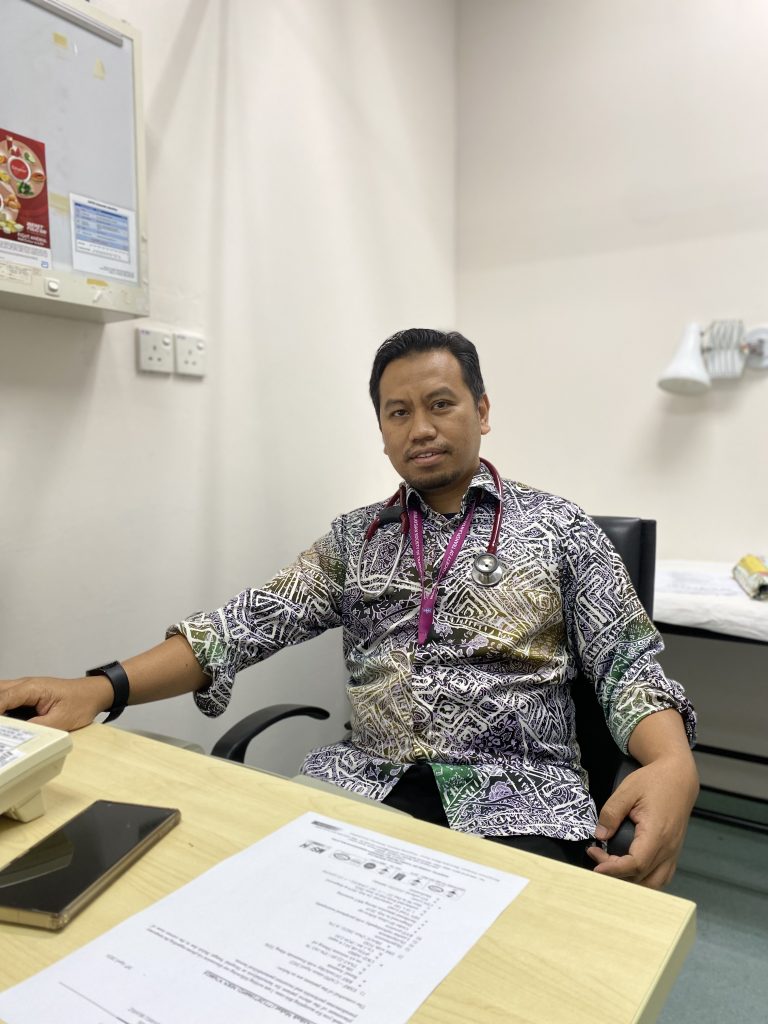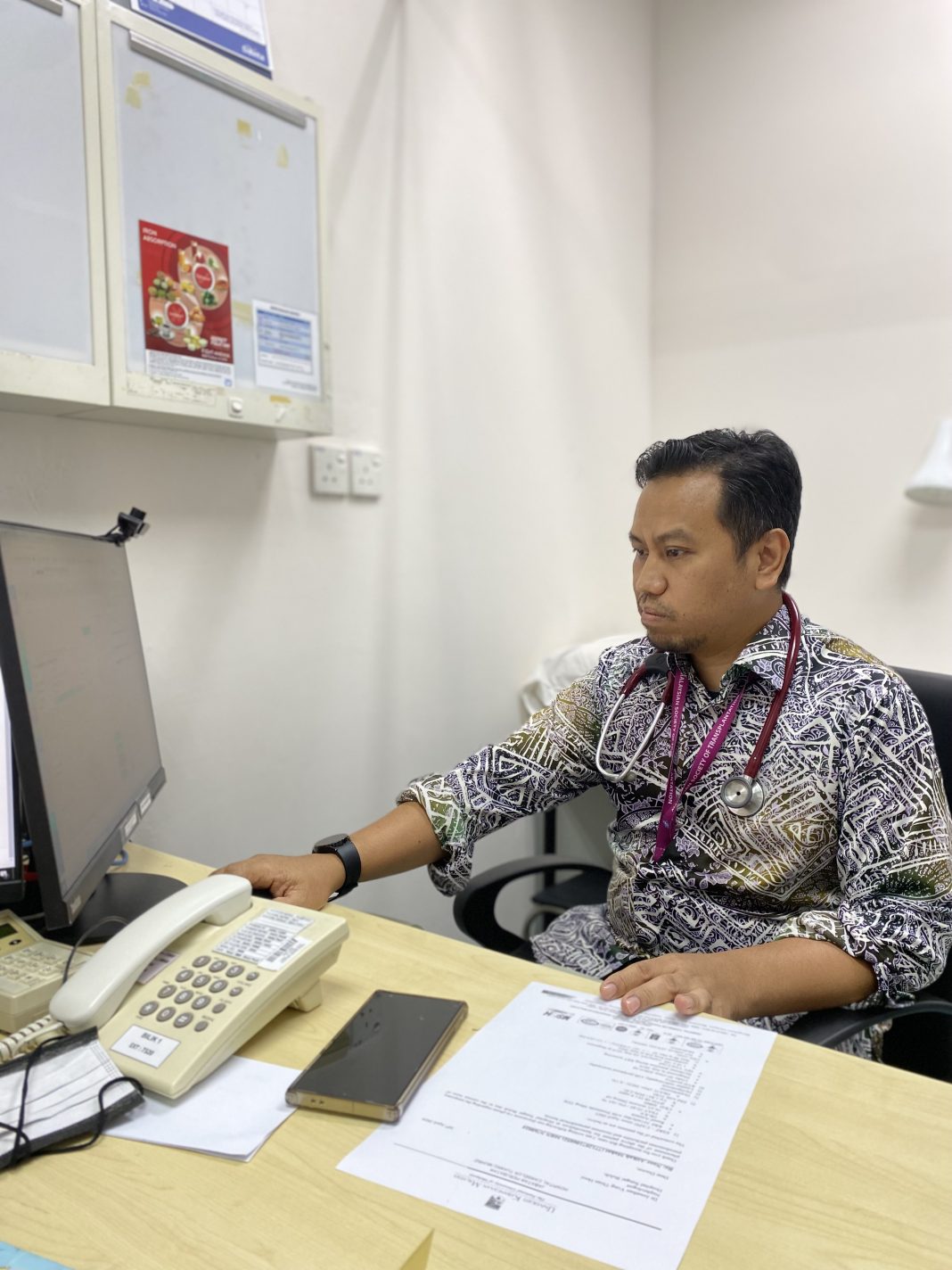Humans are born with two kidneys, allowing us to continue living even if one becomes damaged. However, the increasing prevalence of kidney failure has led to more people requiring dialysis treatment. Is there a way to reverse this trend?
In this story, we look into kidney health and the challenges seniors face with Hospital Tunku Canselor Muhriz UKM nephrologist Dr Muhammad Yusuf Abu Shamsi.
Is it possible for someone to maintain healthy kidney function throughout their entire life?
Kidney function typically starts to decline around the age of 40, and this process is generally irreversible. Kidney function is measured by the glomerular filtration rate (GFR); the lower the GFR, the poorer the kidney function. Over time, even with healthy lifestyle choices, this decline continues as a natural part of aging. Hypothetically, if a healthy person lived to be 200 years old, their kidney function would decrease to the point where dialysis is necessary due to a significant loss of kidney function.

If kidney decline is irreversible, what is the purpose of dialysis, and what hope is there for people with decreased kidney function?
The primary goal of nephrologists is to stabilize kidney function for as long as possible. Dialysis is a last-resort treatment, waste and excess fluids from the blood is filtered through a machine, effectively performing the role of the kidneys. For patients with decreased kidney function due to hypertension or diabetes, controlling these underlying conditions can significantly slow the progression of kidney decline. As we age, our kidneys naturally decline. But, keeping those illnesses under control can maintain the kidney function for a longer period of time and improve the patient’s quality of life.
How can diet help in managing illnesses, particularly kidney failure? What should seniors look out for?
The first piece of advice I always give to my patients is to make lifestyle changes. Exercise is crucial, but the real challenge is in the diet. Firstly, reduce the intake of high-sodium foods. This means cutting down on fried foods and incorporating more vegetables into meals. Secondly, limit high-protein foods, because excessive protein intake can accelerate the progression of kidney disease. This can be challenging given the Malaysian diet, which typically includes a lot of meat, chicken, beef, and fish. Adjusting these dietary habits is crucial and is often the most difficult aspect to control.
Are there any lifestyle habits that can cause kidney failure which you would caution seniors about?
It’s important to be mindful of your medication, especially painkillers. Some patients rely on painkillers to manage chronic pain, but these medications can lead to chronic kidney disease if not used carefully. Additionally, be cautious with certain herbs and supplements. For instance, the Balkan endemic nephropathy is caused by long-term consumption of small doses of aristolochic acid found in a native plants. This disease primarily affects people aged 30 to 60 and they typically develops kidney failure after living in the Balkan endemic areas for 10–20 years. This compound has also been found in some traditional Chinese medicines, so it is important to know the contents of what you are consuming.

Diabetes and hypertension are among the most common conditions affecting seniors in Malaysia. What advice would you give to a senior who has been recommended to start dialysis?
The decision to start dialysis largely depends on the patient’s age and the expected quality of life with the treatment. For patients with advanced kidney disease and limited life expectancy, particularly those over 80, the focus often shifts to palliative nephrology. This subspecialty aims to reduce the burden of the disease, manage pain, and provide essential emotional support. In such cases, it’s important for family members to make decisions based on the patient’s overall condition and wishes.
Another crucial aspect to consider is the mental state of the patient. Kidney disease typically progresses gradually, and at some point, doctors may advise starting dialysis. This recommendation can be challenging for patients to accept because it represents a significant change in their lifestyle. Incorporating dialysis into a weekly routine can be daunting for many. Therefore, it’s vital for doctors to prepare their patients thoroughly and set realistic expectations to help them adjust to this new phase of treatment.
What are the common causes of kidney failure in young people, and why is this condition becoming more common?
The number one cause of kidney failure in Malaysia is diabetes. An increasing number of young people are experiencing early onset diabetes, which in turn raises the prevalence of kidney failure within this age group. While genetics play a role in some diabetes cases, the primary contributing factor is often an unhealthy diet. Poor dietary habits can lead to uncontrolled diabetes, ultimately resulting in kidney failure. –Christine Cheah






